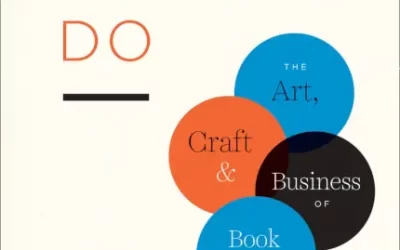If you’ve taken the plunge and made the decision to write a book, that on its own is a huge step. So, first and foremost, congratulations!

The next steps in making your vision a reality can be intimidating at first. But they don’t have to be, especially after dividing the quest into five major components: writing, formatting, getting help, proofreading, and publishing.
Keep in mind that depending on the project, the order of these steps might vary a bit, and/or they might overlap with each other. Nevertheless, thinking about each of them separately is a good place to start.
- How to write a book/write your own book. It might be tempting to immediately dive into the “meat-and-potatoes” portion of the project, but remember: first things first. Focus on establishing your writing space, getting your tools in order, and setting your schedule. That way, you’ll only help yourself avoid burnout early on.
After that’s complete, turn your attention to writing the book’s outline, doing any necessary research, and splitting the project into sections or chunks. This, again, makes a potentially overwhelming process a little more manageable—and it also helps convert stream-of-conscious thoughts into something much more organized, which will be critical later on.
Then, and only then, you can begin to actually put your thoughts on paper. And as tempting as it might be, try not to focus on editing so much right now—that’ll also be for a little further down the road.
Keep in mind too that writing a book is different from writing your own book. The former implies that the project will be a collaborative effort between many different authors. The latter, meanwhile, suggests that it will be a one-person effort. So, before beginning, it’s important to determine whether this will be your own book project or one where the responsibility is shared between multiple people—and, if so, the best way to divvy up who will be tasked with writing what. (Source: https://technicaeditorial.com/wordpress/wp-content/uploads/2023/12/Technica_Unlocking_Creativity.pdf)
- How to format a book. Let’s face it: No matter how much experience you might have, if your formatting isn’t polished, you’re going to seem amateur—and that’s a turnoff for most audiences, even if your ideas are the best in the industry. So, keep an eye out for the seemingly little things that can really add up, such as consistent spacing between paragraphs, professional-looking font styles and sizes, appropriate use of indentation, and consistent capitalization (sentence case, title case, etc.) in headings and/or graphic captions.
- How to get help. Once your book has gone through multiple drafts, most authors are champing at the bit to distribute it to a public audience—but not so fast. This is where it’s time to put the “editing hat” on and start honing in on some of the finer details. But the most successful authors won’t rely on just themselves to make this happen—even the best in the business need help!
First, think about finding an expert mentor (and possibly a literary agent, depending on the intended audience and genre) who will give you feedback that is both honest and helpful, while simultaneously staying positive and encouraging. Seeking help from a professional editorial company with copy editing—for elements such as grammar, spelling, sentence style, and flow of ideas—may also be worth the investment. You may find that you have to make significant changes to, or maybe even essentially rewrite, entire sections of your book. It might be frustrating, but the fact is, if another set of eyes doesn’t see your thoughts before you disseminate them, personal bias is going to prevent you from maximizing your work’s appeal to a public audience.
…So, don’t think of getting help as taking away from your own expertise—think of it as boosting your expertise, because it’s the smart thing to do, even for seasoned authors. (Source: https://technicaeditorial.com/ill-give-you-proof/).
- How to proofread. A common misconception is that proofreading and editing are the same thing, but this couldn’t be further from the truth. They are entirely separate processes and should be treated as such.
Editing, by definition, deals with nitty gritty details, along with major content ideas. By contrast, by the time a book gets to the proofreading stage, the focus should be on major spelling/grammar errors and typos, along with significant formatting inconsistencies or flaws. This means that the most proficient writers will devote an entirely separate block of time to proofreading as opposed to editing—and this may mean enlisting separate sources for help with each.
But before the word “proofreading” even enters the conversation, an author must first ensure that the book has passed the tests of all the other editors. Then, finding the right proofreader is essential—and getting professional referrals, along with sample work, is the best way to go.
Finally, remember that before a book should hit the publisher’s desk, it ideally should be proofread by at least one second source AND the authors themselves. While professional companies can be extremely helpful, it is, at the end of the day, your work—and you want to make sure nothing got lost in translation! (Source: https://technicaeditorial.com/ill-give-you-proof/).
- How to publish. The last step—and, for many authors, the most rewarding one—is to share their work with others.But before taking the leap of faith, it behooves any author to first carefully consider several questions. For example:
- What medium (e.g., print, online, or both) would best help my book reach its maximum potential in terms of audience?
- Should I aim for getting my work noticed by a traditional publisher, or should I try the self-publishing route?
- As far as time is concerned, am I most likely to maximize my audience goals if I publish now, or if I wait until a different season?
While these types of questions might seem pretty basic, in reality, they can make a huge difference when it comes to your book’s success.
Finally, it’s important to remember that not every book will make it to the end of the road. While some ideas might be terrific, for one reason or another, they just don’t end up working out in the finished product. But if that happens, it’s not a failure on your part as an author, because those ideas can certainly be re-tooled into your next project—and plus, it’s a learning experience that will only help that next project thrive!
By: Anne Brenner
Anne is a Managing Editor at Technica Editorial




